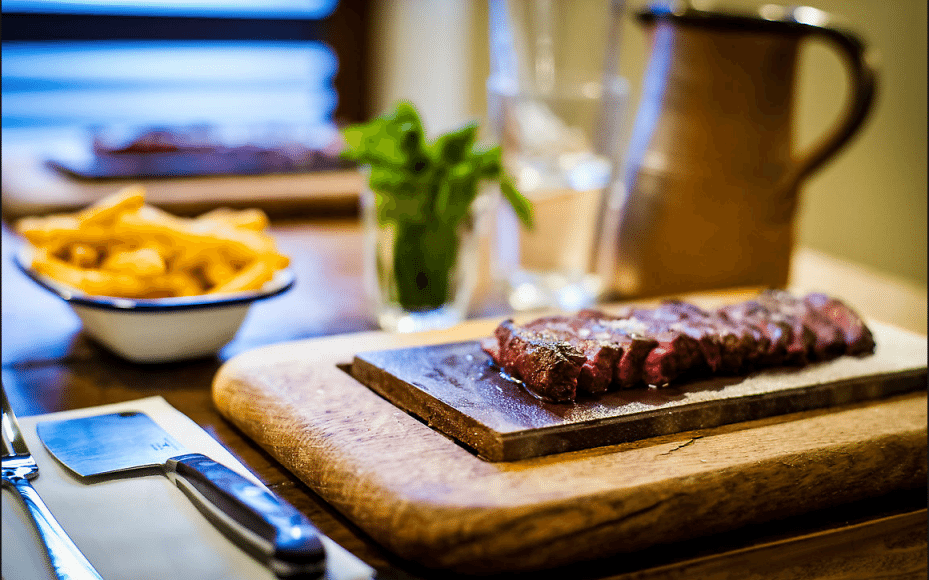RECENT political developments in the United Kingdom have been seized on by Meat & Livestock Australia, in the opportunity provided to push forward the campaign for non-discriminatory market access for Australian beef and lamb.

Richard Norton
MLA managing director Richard Norton said Brexit and the UK’s decision to call a snap general election for early June added new urgency to progress Australia’s red meat trade ambitions, given the UK’s new trade policy – and any quotas and tariffs – would likely be set over the next six months.
Just back from a series of meetings in London, Mr Norton said MLA had moved quickly to build on its long-standing presence in Europe and bolster the campaign to secure equivalent market access for Australian red meat in the UK.
“There are real opportunities for the Australian red meat industry, providing we can compete with other countries on an equal footing,” Mr Norton said.
“A continuation of the current trade arrangement and system of preferential quota allocations is untenable in a post-Brexit world. We feel strongly that now is the right time to re-balance the trading disparities Australia has faced in the region for the past 45 years,” he said.
MLA’s efforts will include boosting its presence in London, expanding its market access team in the region and continuing to work in conjunction with the Australian Government.
“We will strongly pursue the case for non-discriminatory access to the UK market and its population of more than 65 million people,” Mr Norton said.
“As a trusted producer of the highest quality natural beef and lamb, Australia is well placed to offer both the UK and the EU a safe and reliable supply of superior red meat,” he said.
“Given our cattle herd and sheep flock numbers, the range of global markets that we service, our high exchange rates and higher manufacturing costs, Australia is not in a position to flood the UK or EU markets.
“Food economics are fast-moving from a state of negative growth to inflation, so it is imperative the UK and the EU address the inequalities of past beef and lamb tariff rate quotas with Australia,” he said.
The UK is currently not self-sufficient in red meat production, importing 250,000 tonnes of beef and 90,000t of sheepmeat, however Australia’s market share represents just 6pc of total red meat imports.
The Australian red meat industry has a long-standing affiliation with the UK, despite the significant loss of market access when the UK joined the European Economic Community (predecessor to today’s EU) in 1973.

Australian flat iron steak (seamed oyster blade) in a UK steak restaurant
Mr Norton said MLA’s plan for the UK was not about pursuing one market over another, but was simply about proactively meeting the expected new political time-frames due to an early general election and the UK’s ongoing departure from the EU.
“Equally, our industry and government must also maintain a steely focus on negotiating a Free Trade Agreement with the EU. These are relationships we want to see prosper, and that can only happen when Australia is afforded equal opportunity in what is a very competitive market,” Mr Norton said.
Apart from trade access, Mr Norton also highlighted the opportunities – and shared benefit – for further collaboration between the Australian and UK red meat industries, which he had discussed in a meeting with influential UK agricultural lobby group, the National Farmers Union.
“The UK has some 17 million hectares of domestic agricultural land, but UK investors own far more in Australia, at just over 27 million hectares. The UK is by far the largest foreign investor (in some cases, minority, rather than majority or outright shareholding) in Australian agricultural land – the majority of which is used for livestock production. Therefore, renewed trade negotiations will also act to support the UK’s existing agricultural interests in Australia,” he said.
In discussions with the NFU, Mr Norton expressed the Australian industry’s desire to collaborate on research and development opportunities across the entire value chain. These included on-farm production and off-farm processing efficiencies such as the Meat Standards Australia eating quality system, objective carcase measurement technology such as DEXA and Australia’s leading, fully integrated livestock traceability database.
In London, Mr Norton also met with George Abrahams, managing director of the George Abrahams Group, a major UK import/export business.
“It was reassuring to hear from Mr Norton that the Australian red meat industry is proactively seeking change as we move to a standalone UK trade partnership,” Mr Abrahams said.
“Australian beef is in strong demand in the UK, however current trade agreements and European Union Cattle Accreditation Scheme (EUCAS) restrictions are undoubtedly a source of frustration. Small quota volumes and a 20pc duty on Australian product make it very difficult to compete. Trade outside this restrictive quota regime is stifled by a 12.8pc tariff plus an additional static duty of €3.03/kg (AUD $4.38/kg),” Mr Abrahams said.
Some export trade participants in Australia have also speculated that the UK’s break from the EU might present an opportunity to move away from the EU’s staunch no-HGP policy, which has limited Australian beef trade.



At the time the UK was negotiating to enter the EEC I was on a business related trip to London, actively visiting British beef importers to whom at that time the company I worked for was exporting boneless beef cuts. Nearly all British importers I met with were looking forward to importing beef from the EEC countries, mainly France, expecting the beef to be better quality & cheaper. This expectation has overtime proved to be a fallacy.
Mainly through lack of real interest on the part of Australian negotiators, when the UK became a member of the EEC, Australia fared badly on the granting of low tariff meat quota entry to the EEC. In contrast New Zealand obtained some 90,000 tonnes of low tariff meat quota.
Since that time Australia has tried without much success to substantially increase its quota. We can only hope Australia has more success following Brexit